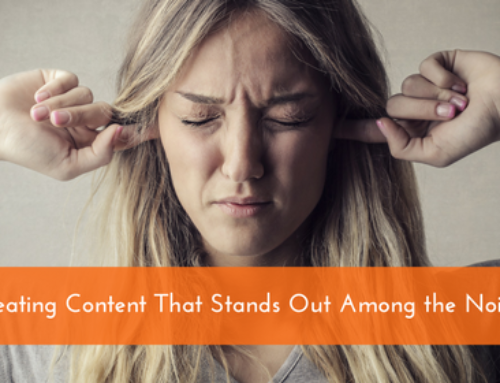How would your customers rate your content marketing strategy?
Is it mediocre, or something truly remarkable? Here’s a hint: if it’s outstanding, your audience will let you know through their comments and shares. Thought leader Joe Pulizzi once shared a humorous story about a brand that thought their content was “good” because it was getting done. Unfortunately, that’s no longer enough. The average American today consumes around 6.9 million gigabytes of information each day, which is enough to fill nine DVDs. For your content marketing to make any kind of impression, it’s got to be better than mediocre. Better than good, even. It needs to be truly epic.
While there is no one-size fits all formula for brands to hit their content out of the park, here are some proven ways to dominate in your industry:
1. Find Your Unique Angle
What do Suze Orman, Marcus Sheridan, and Dr. Oz have in common? They’re all in the business of delivering information. More importantly, they’re incredibly well-defined brands that deliver information in a very specific way. By no means is Orman the first person to talk about financial responsibility. However, the fact that she consistently delivers her advice in a no-nonsense way sets her apart from the rest.
There’s almost no chance you’ll be the first brand in your niche to create content. However, there’s almost certainly an angle or approach that’s yet to be filled. Find it, and dominate it.
For more on this topic, check out 7 Ways to Make Content Marketing Work for Your Brand.
2. Fill a Need
Before you publish every piece of content, from Facebook posts to whitepapers, you should be able to answer a very simple question.
What’s the point?
And more importantly, does anyone need this content? As Pulizzi points out, this “need” doesn’t have to be explicit or life-altering. You could simply be fulfilling your audience’s need for entertainment. Maybe you’re educating your readers, or providing them with a sense of normalcy by empathizing. Whatever the need, content that lacks a point can be pointless at best and self-serving at worst.
3. Provide Useful Examples
Nothing makes someone’s eyes glaze over faster than an article that’s not rooted in reality. The Seth Godins and Jeff Hadens of this world can get away with publishing short, thought-based pieces. However, they have earned the right to hypothesize and question the norm.
Your content marketing will be instantly improved if you “map it to reality” by providing useful examples. These can take the following forms:
- Stats, facts, and studies
- Graphs and charts
- High-quality quotes and citations
- Screenshots, screencasts, and descriptive images
Don’t just tell your audience; show them by backing up your words and thoughts. It will lend an instantaneous degree of quality and credibility to your content marketing.
4. Be More Relevant
The web is a real-time publishing platform. As David Meerman Scott puts it, “all it takes is a single afternoon to blast the wheels off someone’s laboriously crafted narrative.” As a content marketer, your job is more than just storytelling. You’ve got to firmly entrench yourself in the dialogue of your industry, so your content can be more contextually-relevant, up-to-date, and fresher than anyone else.
5. Be Agile

Everything online happens remarkably quick. As a content marketer, you’re provided access to your analytics and metrics in real-time. Use this power to measure often, and measure carefully. Adopt the agile framework’s approach to continual measurement, analysis and improvement cycling. Don’t be afraid to pivot quickly, and try different angles of sharing your brand’s story when it’s clear that your current approach isn’t working.
6. Visualize
Visual content is processed 60,000 times faster than plain text. If your brand’s relying solely on text to get your message across, you’re missing countless opportunities to connect with the visually-inclined. Your content strategy should include images and video on your website, and in social media. Tell your story in a number of different ways across different platforms, and don’t become too reliant on any single medium to get your message across.
What do you think is the difference between good and exceptional content marketing? Share your experiences in the comments!






